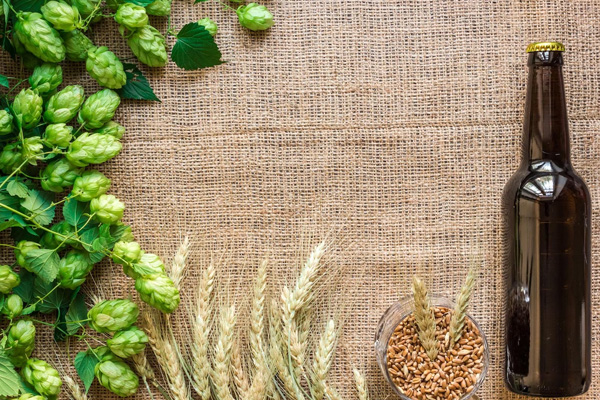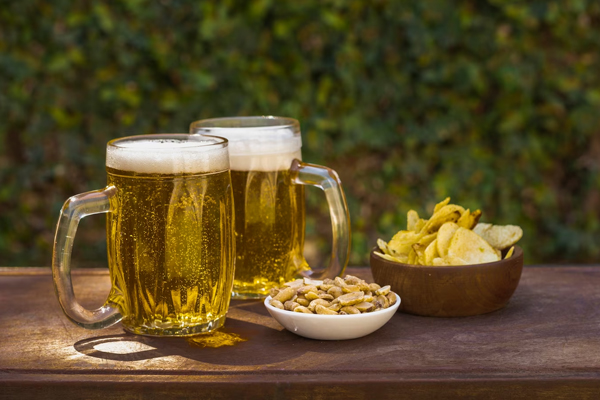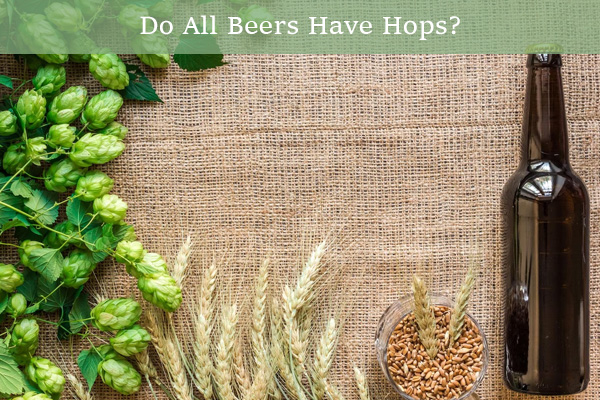When it comes to the world of beer, few ingredients have as significant an impact as hops. These small, cone-shaped flowers are not only a fundamental element in the brewing process but also a defining characteristic of many beer styles. However, the question that often arises among beer enthusiasts and curious minds alike is, “Do all beers have hops?”
Does All Beer Have Hops
No, not all beers have hops. While hops are a common and essential ingredient in many beer styles, there are several exceptions where hops are either used sparingly or not at all. The use of hops in beer varies depending on the brewing style and tradition. Here are some key points to consider:

- Hop-Centric Beers: Many beer styles, such as India Pale Ales (IPAs), Pale Ales, and Double IPAs, are known for their prominent hop flavors and aromas. In these styles, hops are a defining feature and are used generously to provide bitterness, aroma, and a wide range of flavors.
- Low-Hop or Hop-Subdued Beers: Some beer styles, like stouts, porters, and some brown ales, use hops more sparingly. In these styles, the emphasis is on the roasted malt character, and hops play a more subtle supporting role, contributing minimal bitterness and aroma.
- Hop-Free or Gruit Beers: There are historical and traditional beer styles, such as Gruit Ales, that do not use hops at all. Instead, these beers rely on a mixture of herbs, spices, and other botanicals to provide bitterness, flavor, and aroma. Gruit Ales harken back to a time before hops became the dominant bittering agent in brewing.
- Belgian and Wheat Beers: Some Belgian beer styles, like Dubbels, Tripels, and Witbiers, may use hops but often emphasize yeast-derived flavors and aromas. In these beers, hops play a secondary role compared to the fruity and spicy characteristics contributed by the yeast.
- Experimental and Specialty Beers: Modern craft brewers often experiment with various ingredients, including unconventional herbs and spices, to create unique and innovative beer styles that may or may not include hops.
What Do Hops Do In Beer
Hops play several important roles in beer, making them a crucial ingredient in the brewing process. Here are the primary functions of hops in beer.

Bitterness
Hops provide bitterness to beer, balancing the sweetness of the malted barley or other grains. This bitterness is achieved through the alpha acids found in hops. During the brewing process, these acids are isomerized when the hops are boiled with the wort (unfermented beer). The degree of bitterness can be controlled by the quantity of hops used and the length of time they are boiled.
Aroma
Hops contribute a wide range of aromas and flavors to beer, depending on the hop variety and how they are used. Hop aromas can include floral, citrus, pine, herbal, spicy, and fruity notes. These aromatic compounds are often associated with the essential oils in hops and are released into the beer during the late stages of brewing, such as during whirlpooling or dry hopping.
Flavor
Hops also impart flavor to beer. Just like with aromas, the specific flavors can vary widely based on the hop variety. Some hops may add a citrusy or grapefruit-like flavor, while others can introduce earthy, grassy, or spicy notes. These flavors complement and enhance the overall taste profile of the beer.
Stability
Hops have natural preservative properties due to their antimicrobial qualities. Historically, hops were added to beer as a way to extend its shelf life by inhibiting the growth of spoilage microorganisms. This preservative aspect is still relevant in some beer styles today.
Clarity
Hops can aid in beer clarity. The proteins in hops can help precipitate other proteins and particles in the beer, promoting sedimentation and clarification during the brewing process.
Foam Stability
The compounds in hops also contribute to the formation and stability of beer foam. This is crucial for beers like lagers and ales, as a good head of foam enhances the drinking experience by trapping aromas and releasing them as the beer is consumed.
Antioxidant Properties
Hops contain antioxidants, such as polyphenols, which can help protect beer from oxidation and maintain its freshness over time.
Conclusion Summary
The presence and role of hops in beer vary widely, leading to the question: “Do all beers have hops?”
While hops are a common and vital ingredient in many beer styles, such as IPAs known for their prominent hop flavors, they are not universally present in all beers. Some styles, like stouts and porters, use hops more sparingly, emphasizing malt character. Historical styles like Gruit Ales even forgo hops entirely, relying on herbs and spices for bitterness and flavor. Belgian and wheat beers may use hops but prioritize yeast-derived characteristics.
Hops serve multiple roles in beer, from providing bitterness and aroma to enhancing stability, clarity, foam, and freshness. Understanding the diverse functions of hops is essential to appreciating the wide range of flavors and experiences that beer offers.

